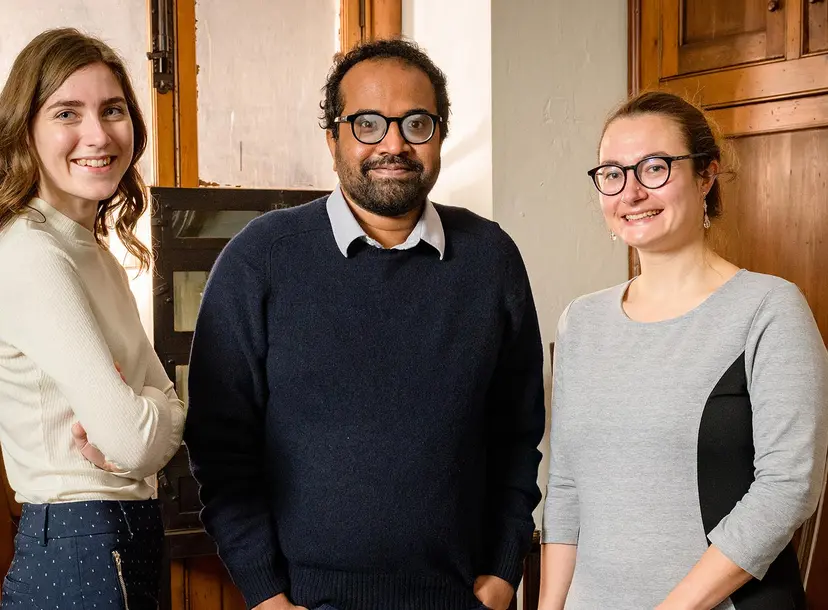Katy Duncan from the University of Cambridge, Aleksandra Kaye from University College London, and Viswanathan Venkataraman from King’s College London were chosen for the award from ‘an incredibly strong field’ of international applications.
It is the first time that Philip Freer Studentship Trust funding for PhD students has been awarded through a competitive process, to bring the very best research projects to fruition. Each Fellow will now complete the final year of their PhD research with support from the Royal Institution (Ri) and funding from the Philip Freer Studentship Trust.
The award of just three Fellowships follows a competitive application process open to leading PhD researchers from around the world. Each new Prize Fellow was required to demonstrate high academic merit combined with insights into present day challenges and a clear contribution to shaping equitable and sustainable futures. Applications were assessed by a panel of world-renowned leaders in the field of history of science.
Lucinda Hunt, Director of the Royal Institution, said: “We should never underestimate the power an understanding of our scientific past has, to transform people’s lives today and in the future.
“The history of science research being undertaken by our Freer Prize Fellows – chosen through a process of open competition – has a vital role to play in furthering contemporary advances in scientific research.”
Dr Sophie Forgan, a Trustee of the Philip Freer Studentship Trust, said: “We are delighted to have been able to award Ri Freer Prize Fellowships to three such outstanding students from an incredibly strong field, as they complete their PhD studies and, importantly, as they communicate their research findings to a public audience.
“The Philip Freer Studentship Trust was established to support postgraduate students in making a difference in the world and that begins by engaging the public with compelling, research-based conclusions.”
The Ri Freer Prize Fellowships have a direct connection to the Ri’s internationally significant collection of scientific apparatus, books and manuscripts, with each fellow linking their work to Ri heritage when communicating their research to the public.
University of Cambridge researcher Katy Duncan is examining leading nineteenth century physicists in search of a solution to one of the unsolved mysteries of modern physics – why the air around us is electrical. While other branches of electrical science have connected and transformed our world, the constant invisible electrification of air has remained a relative mystery.
Yet atmospheric electricity has generated fundamental ideas about our world, including our understanding of ions, radioactivity, cosmic rays and particle physics, with Katy’s research proving the importance to science of individuals, their equipment and where in the world they conduct their scientific experiments.
University College London researcher Aleksandra Kaye is mapping the Polish knowledge networks in nineteenth century Latin America, to understand the role migration has played in the production, transfer and acceptance of scientific knowledge.
Her work is designed to investigate the proposition that marginalised communities are scientifically innovative, and that migrants continue to play a vital role in expanding and sharing scientific knowledge today, in pursuit of solutions to major global challenges.
With nearly 50% of the world’s population (3.6 billion people) lacking safely managed sanitation, research by King’s College London’s Viswanathan Venkataraman seeks to understand the role science and technology has played in the past in addressing this fundamental cause of high mortality rates, particularly in the developing world.
His study of nineteenth century Madras concludes that commercial imperatives – as opposed to medical or public health imperatives – have driven historical improvements, and by tracing their promises, possibilities and limitations is set to inform contemporary international policies in support of billions of people worldwide.
The three Ri Freer Prize Fellows will take up their position at the Ri from 1 January 2022.
ENDS
For more information please contactRobert Davies in the Ri press office:+44 (0)20 7670 2991 /rdavies@ri.ac.uk
